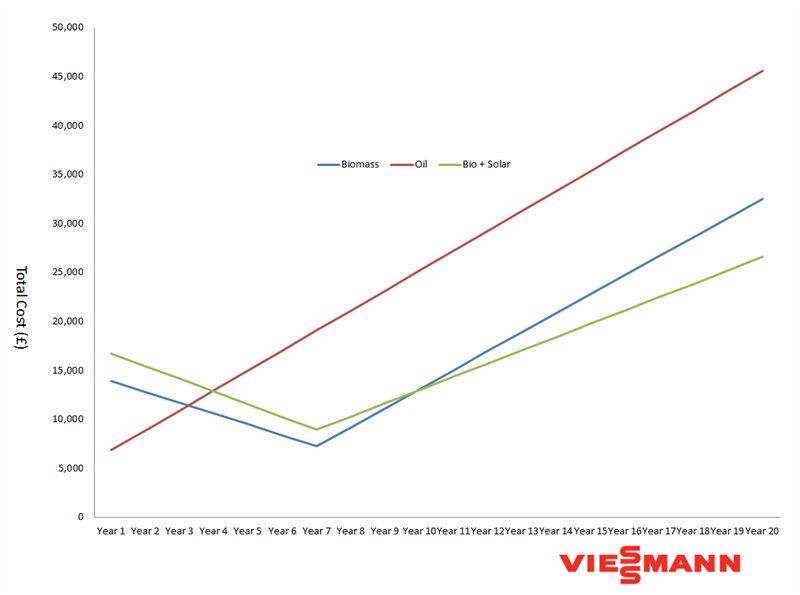Winter 2014 heating product news

Thanks to the government’s new RHI incentive, this winter homeowners can take advantage of biomass boilers offering big savings and a swift return on investment
Large savings and anything from three year payback on investment are now possible with the installation of a wood-burning biomass heating system, ideal for larger, off grid properties.
Winter 2014 is the first winter that homeowners are being invited to take up the government’s new domestic Renewable Heat Incentive (RHI), a government scheme which is designed to increase the uptake of renewable technologies in the home and reduce the domestic carbon footprint in the UK. There has never been a better time for homeowners to assess the potential financial and environmental benefits of replacing an old system with a biomass boiler solution.
Biomass boilers are well suited to those off grid who are used to the process of having oil delivered once or twice a year. Pellets are an environmentally friendly choice, due to the carbon dioxide emitted when wood is burnt being the same as the amount absorbed during it’s lifetime – biomass offers a sustainable, cost effective alternative to fossil fuels.
The RHI pays out a tariff of 12.2p for every Kilowatt hour of renewable heat for biomass. Stringent testing and calculations by German heating systems manufacturer, Viessmann, demonstrate what these savings mean. Buying and installing an oil boiler and operating it over 20 years within a typical 4 bedroom family home would cost £59,300. Before the RHI, installing and operating a biomass boiler in the same home would cost £57,669, whereas with the domestic RHI, the cost would be just £35,584, a saving of £22,085.
Even better savings can be realised by coupling a biomass boiler with solar thermal, used to generate free hot water. This combination can save an average household an average of £1185 a year over 20 years over an oil boiler and the annual carbon dioxide emissions are reduced by over 9 percent.
Viessmann’s marketing director, Darren McMahon says, “Of all the renewable technologies available, biomass boilers behave very much like traditional oil and gas boilers and easily replace their traditional counterparts, especially in larger, older properties that are less well insulated and with high hot water and heating requirements. Importantly, biomass saves money, not only because of the financial incentives but due to lower fuel costs and biomass pellets are much less susceptible to fuel price increases than traditional fossil fuels.
“Whilst biomass will not be suited to everyone due to the required space to store pellets and the size of the boiler housing, it is a great choice for many thousands of homes who are off grid with oil boilers which are at the end of their lives.”
Darren went on to say, “It’s reported that six million tons of perfectly good wood for burning is sent to land fill, whilst the forestry industry wastes enough biomass to heat one and a half million homes every year.”
About Viessmann Ltd.
Viessmann Limited is part of the Viessmann Group of Companies which is one of the leading international manufacturers of heating systems. Founded in 1917, the family business is overseen by the chairmanship of Managing Partner Dr. Martin Viessmann. The Group has annual turnover of EUR 2.1 billion and employs a staff of approximately 11,400. Viessmann’s comprehensive product range encompasses all fuel types and applications, allowing it to deliver high quality, efficient and fully integrated solutions. With an output range of 1.5 to 120,000 kW, Viessmann offers oil and gas-fired boilers, solar thermal and photovoltaics, combined heat and power modules (CHP), ground, air and water sourced heat pumps and biomass boilers.
Press Enquiries
Beth Rothwell, Propel Technology, Unit 4, Manor Farm Offices, Northend Road, Fenny Compton, Warwickshire, CV47 2YY. +44 (0)1295 770602. beth@propel-technology.com
Tags:






